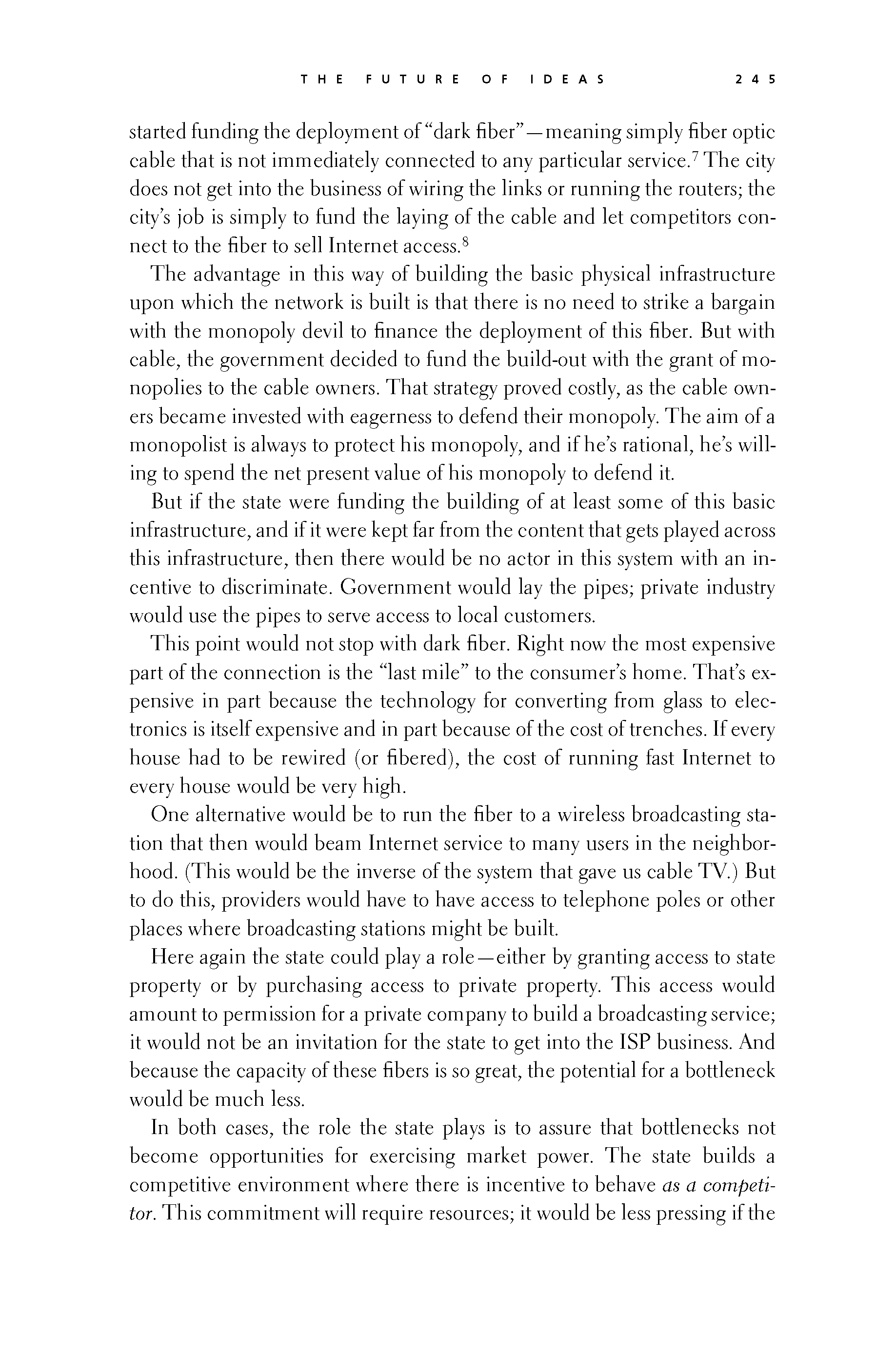 p244 _
-chap- _
toc-1 _
p245w _
toc-2 _
+chap+ _
p246
p244 _
-chap- _
toc-1 _
p245w _
toc-2 _
+chap+ _
p246
started funding the deployment of "dark fiber" -- meaning simply fiber optic
cable that is not immediately connected to any particular service.[14-7] The city
does not get into the business of wiring the links or running the routers; the
city's job is simply to fund the laying of the cable and let competitors con-
nect to the fiber to sell Internet access.[14-8]
The advantage in this way of building the basic physical infrastructure
upon which the network is built is that there is no need to strike a bargain
with the monopoly devil to finance the deployment of this fiber. But with
cable, the government decided to fund the build-out with the grant of mo-
nopolies to the cable owners. That strategy proved costly, as the cable own-
ers became invested with eagerness to defend their monopoly. The aim of a
monopolist is always to protect his monopoly, and if he's rational, he's will-
ing to spend the net present value of his monopoly to defend it.
But if the state were funding the building of at least some of this basic
infrastructure, and if it were kept far from the content that gets played across
this infrastructure, then there would be no actor in this system with an in-
centive to discriminate. Government would lay the pipes; private industry
would use the pipes to serve access to local customers.
This point would not stop with dark fiber. Right now the most expensive
part of the connection is the "last mile" to the consumer's home. That's ex-
pensive in part because the technology for converting from glass to elec-
tronics is itself expensive and in part because of the cost of trenches. If every
house had to be rewired (or fibered), the cost of running fast Internet to
every house would be very high.
One alternative would be to run the fiber to a wireless broadcasting sta-
tion that then would beam Internet service to many users in the neighbor-
hood. (This would be the inverse of the system that gave us cable TV.) But
to do this, providers would have to have access to telephone poles or other
places where broadcasting stations might be built.
Here again the state could play a role -- either by granting access to state
property or by purchasing access to private property. This access would
amount to permission for a private company to build a broadcasting service;
it would not be an invitation for the state to get into the ISP business. And
because the capacity of these fibers is so great, the potential for a bottleneck
would be much less.
In both cases, the role the state plays is to assure that bottlenecks not
become opportunities for exercising market power. The state builds a
competitive environment where there is incentive to behave _as_a_competi-_
_tor_. This commitment will require resources; it would be less pressing if the
[[245]]
p244 _
-chap- _
toc-1 _
p245w _
toc-2 _
+chap+ _
p246